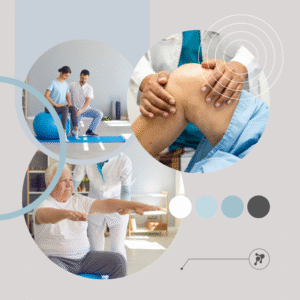In the world of psychological and educational assessment, professionals frequently rely on robust, evidence-based tools to evaluate children, adolescents, and sometimes adults. Two such tools—the BASC-3 and the ABAS-3—stand out for their capacity to assess behaviour/emotion functioning and adaptive functioning, respectively. For psychologists, provisional psychologists, graduate-level counselling or school psychology students, understanding how these tools work—and how to interpret their outcomes—is critical. This article will explore what each assesses, how they differ and complement each other, and how training in their administration and interpretation (such as offered by organisations like Rocky Mountain Psychological Services in Calgary) can enhance one’s professional practice.
What is BASC-3?
The BASC-3 is a comprehensive behavioural and emotional assessment system designed primarily for children and adolescents (age range roughly 2:0 to 21:11 years) though its self-report portion can extend into young adults. It employs multiple informants and methods to gather data on emotional, behavioural and adaptive functioning across contexts (home, school, community).
Key components include:
- Teacher Rating Scales (TRS) assessing adaptive and problem behaviours in school/preschool settings.
- Parent Rating Scales (PRS) gathering information from the home/community environment.
- Self-Report of Personality (SRP) for older children/adolescents to self-report thoughts, feelings and behaviours.
- Structured Developmental History (SDH) and Student Observation System (SOS) and other supplementary forms to enrich the profile.
The benefit of BASC-3 lies in its triangulated approach—multiple perspectives, across settings—which gives a richer, more valid picture of a young person’s functioning.
Uses of BASC-3 include screening for behavioural/emotional issues, supporting diagnosis of ADHD, ODD, anxiety, depression, assisting in educational planning (IEPs, behaviour intervention plans), and providing a baseline for monitoring progress.
What is ABAS-3?
Where BASC-3 focuses on emotional/behavioural functioning, the ABAS-3 is aimed at assessing adaptive functioning—that is, the practical, conceptual and social skills needed for everyday living.
The ABAS-3 covers three broad adaptive domains (Conceptual, Social, Practical) and within that, multiple skill-areas (approximately 11) depending on age. Items ask whether an individual can perform certain daily tasks, and how frequently.
Its age range is broad: multiple rater forms exist (parent, teacher, adult self-report) across birth to adulthood (in some editions up to 89 years old).
The ABAS-3 is used to:
- Identify strengths and weaknesses in adaptive functioning
- Support eligibility decisions for special services or disability determinations
- Inform intervention planning (developing life-skills training, transition planning)
- Monitor adaptive functioning over time
Because adaptive functioning is a key domain in many diagnoses (intellectual disability, autism spectrum disorders, developmental delays), the ABAS-3 plays an important role in multidisciplinary assessment.
How BASC-3 & ABAS-3 Work Together
While distinct, these two assessments complement each other in practice. Consider the following:
- BASC-3 tells you how a child or adolescent is behaving, feeling, coping emotionally and socially; ABAS-3 tells you how well they are functioning day-to-day in practical, conceptual and social life skills.
- In a psychoeducational assessment scenario (for example, examining a child with suspected learning difficulties and behavioural issues) a practitioner might use the BASC-3 to evaluate emotional/behavioural adjustment, and the ABAS-3 to evaluate whether adaptive skills are on par with peers.
- When interventions are being planned, results from BASC-3 might indicate behavioural/emotional areas needing support (e.g., self-regulation, peer relations) while ABAS-3 might highlight practical life-skills deficits (e.g., self-care, organisational skills, social skills) that require structured intervention.
- By integrating the data from both, the psychologist can produce a more holistic profile, which is particularly useful for educational planning, transition planning, or when working with clients who present with multiple areas of concern.
Key Strengths and Important Considerations
Strengths
- Both tools are norm-referenced, evidence-based, and widely used in clinical and educational settings. For example, BASC-3 offers multiple forms and perspectives, which lends to robust behavioural/emotional profiling.
- ABAS-3 aligns with major frameworks (AAIDD, DSM-5, IDEA) and provides meaningful adaptive scores (General Adaptive Composite, domain scores) that have practical implications.
- Both support digital/scoring platforms and allow for efficient administration and reporting.
Considerations
- Informant bias and setting effects: On the BASC-3, results may differ markedly across teacher vs parent forms, reflecting different environments or observer perspectives. One Reddit user noted:
“It’s possible to have the discrepancy, due to certain behaviours occurring in one setting but not the other.”
This highlights the need to interpret BASC-3 results in context and not rely on a single form or rater.
- Adaptive behaviour is about “what the individual does do” rather than just “what they can do”. On the ABAS-3, low scores may reflect lack of opportunity or expectation rather than inability. Some practitioners caution that the ABAS may overestimate functioning in some cases.
- Both assessments should not be used in isolation. They are components of broader assessment batteries that include cognitive, achievement, developmental, interview and observational data.
- Cultural, linguistic, and socio-economic factors: Norms reflect certain populations (in ABAS-3, a U.S. norm sample of ~4,500). Practitioners in Canada (Alberta) must interpret results with cultural and contextual sensitivity.
- Proper training and professional qualification are required to administer and interpret these measures ethically and effectively.
- Why Training Matters – Especially in Calgary / Alberta
For psychologists, provisional psychologists and graduate-level students in Calgary and the Alberta region, gaining competency in administering and interpreting BASC-3 and ABAS-3 is a significant professional asset. Training courses (such as those offered virtually or in-person by Rocky Mountain Psychological Services) provide the following benefits:
- Hands-on experience with real scoring and interpretation practice (as noted in RMPS’s course description).
- Confidence in writing professional reports that effectively integrate BASC-3 and ABAS-3 data for clients, schools and families.
- Familiarity with the unique referral questions and educational service context of Alberta (e.g., special education eligibility, behaviour intervention plans in schools, transition planning for youth).
- Opportunity for small-group instruction, discussion of best practices, ethical considerations, cultural/contextual issues specific to Canadian/Alberta practice.
Practical Tips for Practitioners
- Ensure referral clarity – Understand exactly what the referral question is (behavioural/emotional dysfunction? adaptive functioning? transition planning?) so you select the right tools (BASC-3, ABAS-3 or both).
- Gather multi-informant data – Especially for BASC-3, include teacher, parent and possibly self-report forms if age-appropriate. For ABAS-3, gather multiple raters (parent, teacher, adult self-report) for richer data.
- Interpret scores in context – Look not only at standard scores and percentiles but also examine validity indices, cross-rater discrepancies, and the environment/expectations in home/school.
- Integrate findings into actionable recommendations – For example, if BASC-3 shows elevated behavioural concerns and ABAS-3 shows low practical adaptive scores, your report should reflect both: behavioural intervention AND life‐skills development.
- Report clearly and meaningfully – Write in language accessible to parents, teachers and stakeholders. Translate technical scores into meaningful statements (e.g., “John’s ability to effectively self-regulate in the classroom is below his peers (BASC-3 T-score = X) and his daily life skills in getting ready for school independently fall at the ‘Below Average’ level (ABAS-3 General Adaptive Composite = Y).”)
- Consider cultural and local educational context – For clients in Calgary/Alberta, be mindful of the local school system, expectations, resources and supports available. Recommend locally relevant interventions and refer to local supports when appropriate.
Conclusion
The BASC-3 and ABAS-3 are powerful assessment tools that serve complementary yet distinct purposes in the evaluation of children, adolescents and young adults. BASC-3 offers deep insight into emotional, behavioural and adaptive functioning across settings; ABAS-3 measures how well an individual is managing real-life conceptual, social and practical demands. When used together—and interpreted by trained professionals—they form a robust foundation for assessment, intervention planning and reporting.
For psychologists and graduate-level practitioners in Calgary and the Alberta region, investing in formal training in these instruments is not just about mastering test protocols—it is about enhancing your ability to support clients, families and educational systems with evidence-based, relevant and meaningful recommendations.
If you are ready to deepen your skillset and advance your professional practice, a one-day (or short-format) training in BASC-3 & ABAS-3 may well be your next step toward assessment excellence.



